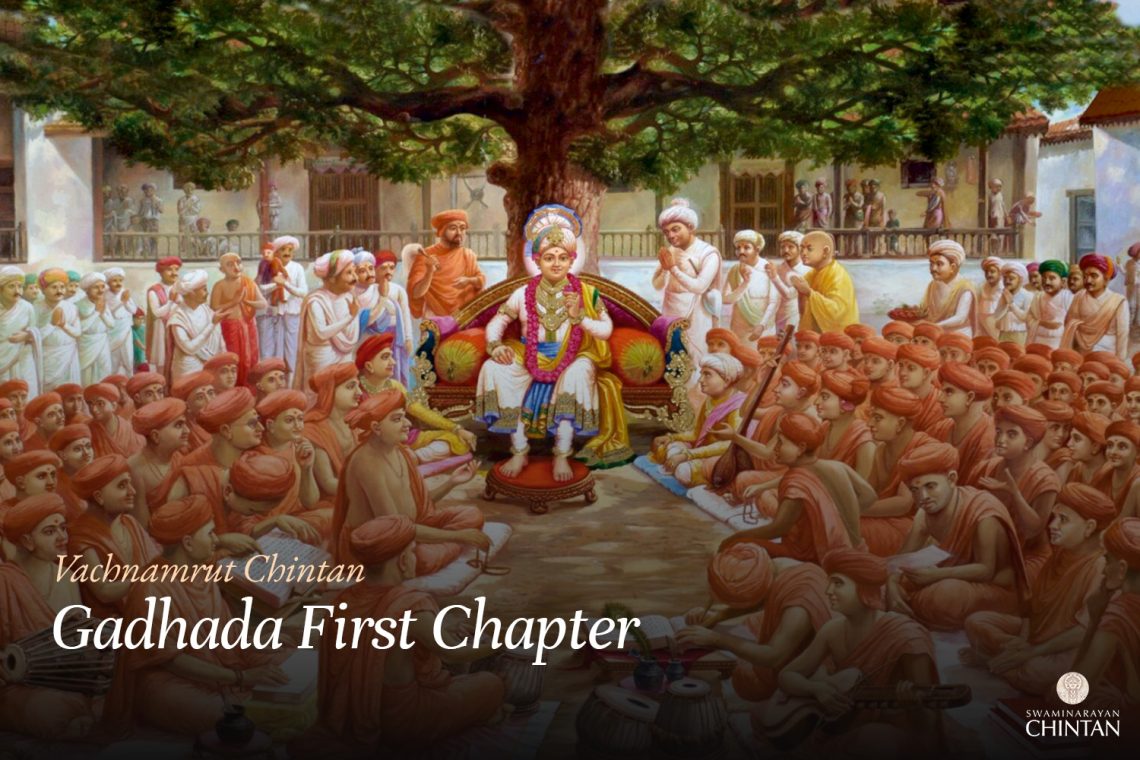Central Insights:
- A discussion on the different forms of Vāsnā (attraction towards material objects) and an Ekāntik (single-minded) devotee.
Key Points:
- The desire for materialistic objects is described as Vāsnā.
- An Ekāntik Devotee is one who has the desire to please God and nothing else.
Explanation
In this Vachanāmrut, Sadguru Shri Brahmānand Swami asks Shreeji Maharaj, “what is the form of Vāsnā?” Shreeji Maharaj replies that the desire for materialistic objects enjoyed, seen, or heard in the past is called Vāsnā. Additionally, Vāsnā can also be described as desires of worldly objects which are not enjoyed as well.
The attraction for material objects are by three ways physical, mental & emotional. Within these realms, there are three subdivisions created by time: past, present, and future. Within this, desires are indulged through the form of Vāsnā and the form of livelihood. Within livelihood, objects are consumed through offering to God and without offering to God which is only for livelihood. To bring clarity for the Vāsnā within the Antahkaran, it is very important to understand these factors.
Firstly, there are three kinds of desires: physical, mental, and sentimental/emotional. In Physical, The body has its own natural desires required to sustain itself and also Vāsnā merged init. Mental desires appear form of memories and Vāsnā is the only cause because the physical body does not fall apart if one does not have God or bad thoughts, If physical objects are not consumed one might not survive while not remembering them mentally will neither lead one becoming physically weak or strong nor the ability to work will increase or decrease. So, then what is the purpose of remembering it? This brings greater clarity that it is Vāsnā. Same is to sentiments. Repetitively thinking about internal desires/thoughts deeply creates sentiments. These sentiments are about fulfilling those desires. Desires for women, taste, and wealth are driven by sentiment. These desires are for the present whereas mental desires are from the past. Both are forms of Vāsnā. From this mental and sentimental Vāsnā are based on the past and relate to the future.
Now what remains are the body and present forms of Vāsnā. To differentiate the two is difficult. One is to sustain one’s life while the other is the form of Vāsnā. Here there are two groups. It is difficult to find the difference between the two. This is where the commandments of Maharaj or prescribed by scriptures are required to create the distinction. The more people stay within the boundaries, the more it falls under the sustenance category and when people breach these boundaries laid down by Maharaj & scriptures that is when it becomes Vāsnā. In this manner, if mentally the goal is to simply indulge that is when it becomes Vāsnā. The desire for materialistic objects just for the sense of gratification is the form of Vāsnā. while desires to meet God are attributes of an Ekāntik devotee.
Maharaj says that one who has no other Vāsnā and performs bhakti (Devotion) considering himself as a Brahmrup (considering oneself as a liberated soul of Akshardhām) is an Ekāntik devotee. It is not difficult to consider oneself as a form of Brahm, in fact Vāsnā (strong worldly desire) is just an obstacle in doing that consideration.
Glossary
| Akshardham – The eternal supreme abode of Bhagwan Swaminarayan The divine realm where Bhagwan Swaminarayan resides along with Akshar Muktas (Divine Liberated Souls). |
| Antahkaran – Inner faculties The mind, intellect, consciousness, and ego, which help in acquiring spiritual knowledge. |
| Bhakti – Devotion Loving and selfless worship of God. |
| Brahmrup – State of Spiritual Oneness Realizing oneself as distinct from material existence and aligned with Brahman. |
| Ekantik Devotee – Singleminded devotee A devotee imbued with Dharma, Gyan, Vairagya, and Bhakti, fully dedicated to God. |
| Vasna – Latent desires Deep-rooted tendencies or impressions that drive thoughts, actions, and attachments, influencing spiritual progress. |

